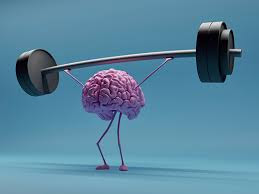October Newsletter 2025
Happy Halloween
We are always happy that Halloween coincides perfectly with our monthly newsletter.
Since it’s showing up tomorrow, we thought we might revisit some history on this spooky holiday. We also have lots of fun things to do around the Front Range.
Let’s get to it.
We can thank the Celtics for this annual tradition. No, not the Boston Celtics, but the original Irish ones, dating back to 500BC.
Back then, New Year’s Day was on Nov. 1, which they called Samhain. The belief was that before the new year, the door between the worlds of the living and the dead swung open.
The trapped souls of the recently dead were then free to pass to the underworld. Since they thought spirits came out after dark, this supernatural activity reached its peak the night before, on Oct. 31.
Rituals were created for protection to fool the spirits. These included costumes and disguises. They lit bonfires and stuck candles inside carved turnips – the first jack-o’-lanterns – to scare away any spirits looking for mischief. If all else failed, they carried a pocketful of treats to pay off wayward spirits and send them back on their way to the underworld.
So, we can thank the Irish, who brought Halloween to our country in the 1800s. While the origins of Halloween had many religious undertones, the current version is most definitely an American one.
More locally, what is going on around Denver this weekend to celebrate this spooky holiday? Well, there is the Magic of the Jack O’ Lanterns, which looks really cool. We also think the tour of the Brown Palace and its haunted history looks fun.
We also found this list of events and festivals to get you feeling very spooky! Finally, if you like a good corn maze, here you go!
For the exact time and date of door-to-door trick or treating, you should consult with your local area, as those vary quite a bit, even by neighborhood. The generally accepted window is from 4-7 or so, but some cities have their own rules on that one.
Meanwhile, we hope you have a fun and safe Halloween!!!!


Health Insurance Skyrocketing
This is not a headline we are super excited to share with you.
It seems 2026 will be a historical year for health insurance premium increases.
For starters, anyone in the healthcare marketplace via Connect for Health Colorado could see increases up to 101%, due to the expiration of tax credits.
This affects nearly 225,000 Coloradans and looks like a big problem.
What about those of us not on Connect for Health Colorado?
For starters, in 2026, small businesses in Colorado can expect a statewide average health insurance premium increase of approximately 13% to 13.6%.
Per the headline photo above, we can expect roughly 28% increases in individual market premium costs next year.
This might be a good time to review your health insurance overall, but there doesn’t seem to be much good news.
In fact, the weighted average increase for pre-subsidy premiums in the individual market is over 23% nationwide.
We found a solid article on options that might help you reduce costs, and it is here.
Again, we wish we had better news, but it looks like 2026 is going to be very memorable in terms of health care premium costs.

AI Lawyers?
Who hasn’t had a pain somewhere and immediately gone to WebMD?
We sure have, and mostly found good information.
Those days have morphed into AI, and it is changing things dramatically, not only for doctors but for attorneys as well.
The recent headline in our own Denver Business Journal about businesses using AI for legal work caught our eye.
When we read further, we realized what a risk this is for all of us, and we wanted to dive deeper into the problem.
From the article, “Small-business owners and other professionals are saving thousands of dollars a year by using artificial-intelligence tools for legal work, but they could be setting themselves up for catastrophic trouble based on how they’re using the technology.”
“A new survey from tech venture Smallpdf found that 55% of professionals surveyed have used AI tools for drafting, editing or reviewing contracts. The average time savings was about four hours per week, or 26 workdays a year.”
Very interesting, but what is the downside?
“These AI tools may have access to case law, but they frequently misinterpret, misunderstand, and misstate both the law, elements of laws, cases, and case precedent, often wholly misinterpreting cases as supporting one idea when the case actually goes against that idea,” Kashman said.
While AI can certainly assist with basic tasks, such as helping small-business owners with reviewing contracts or drafting basic legal documents, it’s not a viable replacement for an attorney.
Up-front savings might mean mistakes and costly errors that business owners have to pay for down the road.
The full article on AI and its hazards can be found here.
Another fine piece on the risks of using AI to replace your attorney can be found here.
AI is a wonderful and rapidly evolving tool, but overreliance on it could create big problems.

Denver Public School Update
It is clearly a very rough time at Denver Public Schools (DPS).
Starting with the Denver Post headline about a potential “financial catastrophe,” the DPS leaders are facing a “three-pronged threat”.
Starting with declining enrollment, DPS is down 1200 students year over year. That doesn’t seem like much, until one realizes that it will result in DPS receiving $18.5 million less annually in per-pupil funding.
DPS enrolled 90,450 students last year.
The other two prongs? State and federal budget cuts, including battles with the federal side over the potential removal of gender-neutral bathrooms.
They are also part of the election cycle this November, as 11 candidates vie for four open seats.
The full article on the Post (paywalled) can be found here.
Denver 7 did a non-paywalled piece here.
Meanwhile, we will continue to provide updates on DPS periodically. We certainly hope they can sort through these big challenges.

TransUnion Data Breach
In case you missed it, one of the three credit bureaus, TransUnion, had a massive data breach in late summer.
From the article on Money, “We recently experienced a cyber incident involving a third-party application serving our U.S. consumer support operations,” a sample letter reads. “We regret any concern caused by this incident and take seriously the responsibility to help secure consumer information.”
“TransUnion told Money that the leak did not involve its “core credit database or include credit reports” and that the company “identified and contained this event within hours.” The credit bureau is offering two years of free credit monitoring services (provided by Cyberscout) to those impacted, according to the letter.”
The concerning thing here is that the data breach did not get much attention, nor has TransUnion done a great job of communicating it.
The article in Money goes on to discuss other data breaches, including Google (via Salesforce) and Lexis/Nexis, which reported that 360,000 people had sensitive data stolen, including SSN, Driver’s License, and dates of birth.
To check if you were impacted, you can contact TransUnion directly by calling its fraud assistance line at 1-800-516-4700. The call center is open Monday through Friday, 8 a.m. to 8 p.m. Eastern time.
Beyond that, we are big believers in services like Lifelock, which give immediate alerts on things like credit applications or any fraudulent activity.
For now, Google has recommended that anyone with Gmail reset their passwords, which is usually a good idea every now and then anyway.
Forbes put out a good list of the best identity theft companies out there, and it is here.
Be smart and safe, Denver, and keep an eye on your credit scores and reports.

Monthly Award Winners
Our monthly award winners for September were Nimia Espinoza, Aurora Dominguez, Concepcion Reyes, Cecilia Reyes, and Josefina Quinonez.
In the Team Leader ranks, it was Socorro Ibarra and Laura Varela.
We are so proud of our winners and of all the folks who are in and out of your homes each week.
We are also very appreciative of being a part of your lives and your homes. You provide the platform for our teams to perform, and for that, we are grateful.
Please join me in congratulating our best performers for September.

Queen Bee Corner
by Angela
Happy Halloween to all our Denver Concierge clients!
It has been a treat (no trick) this year to see so many of our clients’ homes decorated for the holiday.
It shows that with a knack for fun and creativity, we can move beyond the cheap store displays and holiday-themed dishes and napkins.
The outdoor neighborhood installations are especially elaborate this year. For those who didn’t make it to the high country to catch the changing colors, a drive around our streets (especially at night) will provide an alternate experience of beauty and comedic effect.
Colored lights strung along fences and in the trees, 10-foot witches, a clever montage of two skeletons playing cards, ghosts suspended in the air.
All set against the backdrop of Colorado’s beautiful fallen leaves.
In the days of yore, before there were Halloween Peeps and Pumpkin lattes, a big, round, carved pumpkin with a candle inside said it all. Before kids could have candy anytime, anywhere, there was much more excitement and anticipation about the trick-or-treat experience.
Much of the simplicity of those days is not coming back, but it is encouraging to see that at least the witches and skeletons still appear in our yards at this time of year.
Have a safe and sweet Halloween!
Bee












 Memory loss isn’t random—it’s the result of specific, often preventable factors.”
Memory loss isn’t random—it’s the result of specific, often preventable factors.”





















































